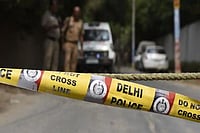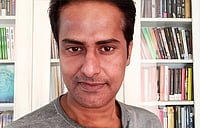The Delhi High Court has summoned BBC in a defamation suit claiming that its documentary on Prime Minister Narendra Modi "cast slur on reputation of India, judiciary and PM Modi".
The two-part BBC documentary "India: The Modi Question" claims it investigated certain aspects relating to the 2002 Gujarat riots when Modi was the chief minister of the state.
“It is contended that the said documentary makes defamatory imputation and caste slur on reputation of the Country and Judiciary and against the Prime Minister of India. Issue notice to the respondents through all permissible modes,” Justice Sachin Datta said while issuing the summons and listed the case for further consideration in September, according to a report by Bar and Bench.
The defamation suit has been filed by a Gujarat-based NGO Justice for Trial. Besides the BBC (UK), Justice Sachin Datta also issued notice to the BBC (India) seeking its response on the suit filed. The plea said BBC (India) is the local operation office and BBC (UK) has released the documentary -- "India: The Modi Question" -- which has two episodes.
Senior advocate Harish Salve, appearing for the NGO, said the suit for defamation against the BBC is in relation to the documentary which has "defamed" India and the whole system including the judiciary. He contended that the documentary also makes insinuation against the prime minister.
The high court said, "Issue notice to the respondents through all permissible modes" and listed it for further hearing on September 15.
What has happened so far?
On January 20, the Centre issued directions for blocking multiple YouTube videos and Twitter posts sharing links to the controversial BBC documentary. Several student associations in educational institutions have organised screenings of the documentary on their campuses. Some were met with resistance from college authorities, other student groups and police in the form of suspension, power outages during the screening and protests.
On February 10, the Supreme Court dismissed a plea seeking to impose a complete ban on the BBC in India, saying it is "entirely misconceived". A bench comprising Justices Sanjiv Khanna and M M Sundresh passed the order while hearing a plea filed by Vishnu Gupta, president of the Hindu Sena, and a farmer by profession, Beerendra Kumar Singh.
On February 14, the Income Tax Department conducted a survey operation at the Delhi and Mumbai offices of the BBC which went on for nearly four days.
(With inputs from PTI)


























